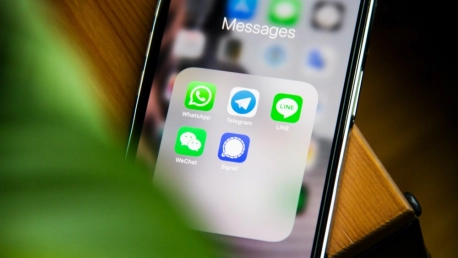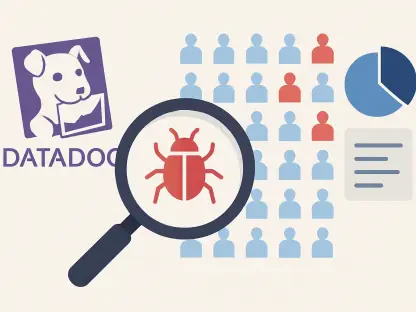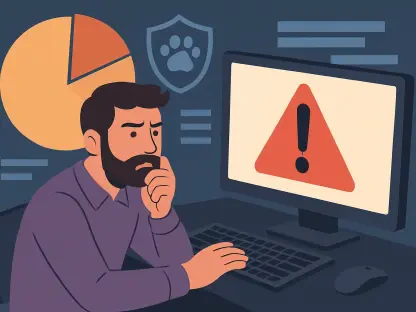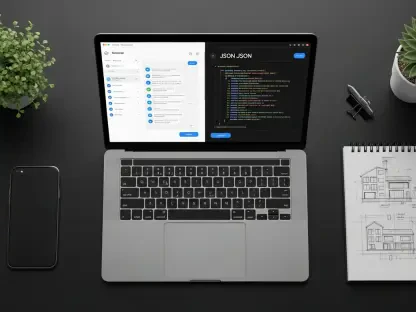Since the Russian invasion of Ukraine, the civilian population was faced with numerous internet and mobile network outages, thus being forced to turn to alternative means of communication and messaging. After analyzing the recently downloaded mobile apps in Ukraine, less popular messaging apps to Whatsapp and Telegram stand out—such as Bridgefy, Zello PTT Walkie Talkie and Two Way: Walkie Talkie. This article is an analysis of other, less popular messaging apps to WhatsApp Messenger, Telegram, Viber, or Facebook Messenger.
Tox
The Tox messaging app works on a peer-to-peer basis, without using a server to facilitate connectivity. The purpose of this function is to avoid any means of interception. The application also uses end-to-end encryption, and aims to provide secure text and video communication.
Tox is available on several platforms and supports Windows, macOS, Linux, FreeBSD, and Android. It is available on the developer’s website.
Wickr Me
Wickr Me claims to be a free app that offers secure communication and provides end-to-end communication encryption, but unlike Tox, peer-to-peer technology is not present. One feature that attracted the app’s popularity is the sending of messages, media files, and other attachments that are valid for a limited time. As of mid-2021, the app has been acquired by Amazon. Solutions are also offered for government or military agencies in Wickr Me, Wickr Pro, and Wickr Enterprise variants.
Zello PTT Walkie Talkie and Two Way: Walkie Talkie
These two apps work similarly, offering similar functionality to the walkie-talkie transceiver stations popular in the past. While the Zello PTT app is a commercial solution with multiple functionalities, promoted by the developer as having construction applications, the Two Way variant is developed by an individual programmer, Vinay Selvaraj. On his Twitter account, he urges citizens of Ukraine to use the application he developed, saying that it does not collect personal data, and can be used anonymously. The app is available for both Android and iOS.
Session
Session uses a decentralized system, so the connection between users is peer-to-peer as in the case of Tox. Communication within this messaging application is ID-based, encrypted and no metadata is collected. These elements make communication on this app secure and private without the threat of data interception. Session’s slogan is also interesting: “Send Messages, Not Metadata.”
The Session app is available on both Android and iOS platforms, as well as macOS, Windows and Linux desktops. Those who want to dig deeper into this app can read the whitepaper titled: “Session: A Model for End-to-End Encrypted Conversations with Minimal Metadata Leakage”.
Threema
Threema is a paid messaging app developed in Switzerland. It uses end-to-end encryption and its servers are located in Switzerland, making the app compliant with European data protection regulations. The app has two modes of use—individual or business. Unlike other messaging apps, Threema offers a “Pay once, chat forever” business model with “no collection of user data and open source.” In other words, the app is not free. It is sold on the App Store, Google Play and AppGallery app stores for approximately $4.
In addition to mobile platforms, Threema can also be used on macOS, Linux, and Windows-powered devices. In order for it to work on any desktop, the mobile app must be purchased.
Bridgefy
According to the description available on the developer’s website, the Bridgefy mobile app allows the user to send text messages offline by simply activating Bluetooth. Technically, the app ensures that messages are sent within a range of about 100 meters and, if the recipient is out of range, the message can be picked up by another user close to the sender and sent onwards via intermediaries until it reaches its destination. The app is available for both Android and iOS.
Signal
With its end-to-end encryption and simple and easy UI functionality, Signal comes highly recommended by some of the top privacy and security advocates. Signal does not store any data. The only information stored on Signal servers for each account is the phone number you’re registered with, the date and time you joined the service, and the date you last logged on.
The app is free, open source, and is available for Android, iOS, Windows, macOS, and Linux.









